(Click player above to listen)
6 Minutes or Less: Putin and the Pandemic
This newsletter-only feature will be available only to paid subscribers: I ask a thought leader or expert to educate/enlighten/explain an issue via audio in 6 Minutes or Less.
Issue: Russia faces falling oil prices and rising COVID-19 cases.
Question: How are Russia and President Vladimir Putin managing the pandemic?
Guest: Angela Stent is Professor of Government and Foreign Service at Georgetown University and author of “Putin’s World: Russia Against the West and with the Rest.”
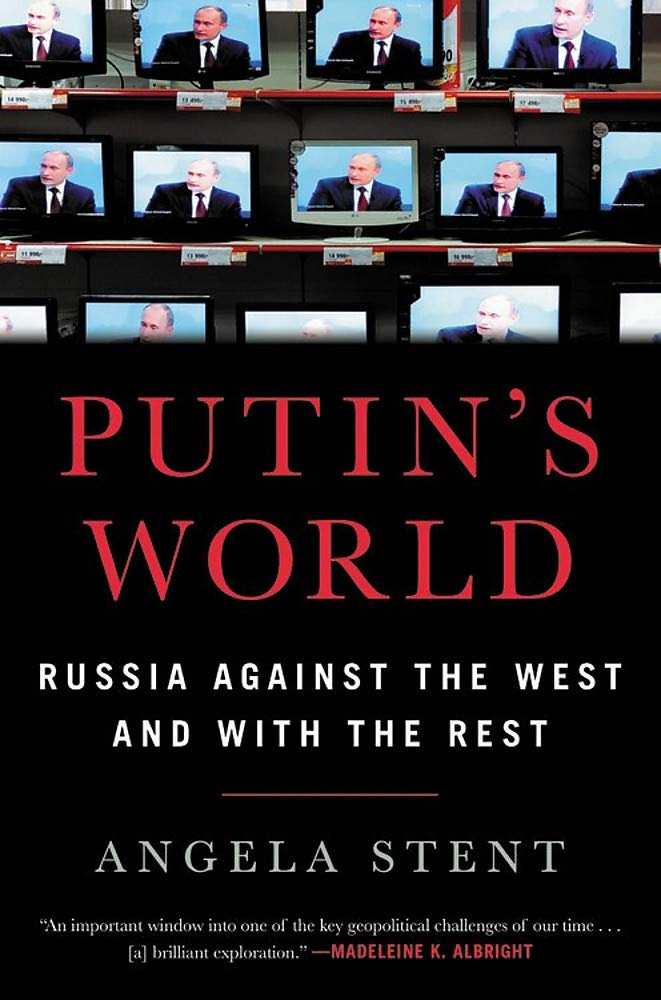
Founding Member Rate: Like the newsletter? During this trial period, you 50% off the regular cost. Continued thanks to everyone who already has done so!
The World
The jobless rate rose in all 50 states in April, with Nevada highest at 28.2% and Connecticut lowest at 7.9%. Treasury Secretary Mnuchin said there is a "strong likelihood" that another relief bill will be needed as states reopen and the economy struggles to stabilize. (Wall Street Journal, The Hill)
China announced a 6.6% military spending increase, but did not set a 2020 GDP target at the National People’s Congress — the first time one’s been omitted since the practice began in 1994, suggesting leaders aren’t eager to unleash a large-scale stimulus. Leaders said safeguarding national security in Hong Kong should be established and activities seeking Taiwan’s independence should be rejected. The U.S. called China’s plan a ‘death knell’ for autonomy, as Hongkongers rushed to download VPN tools. (South China Morning Post, Wall Street Journal, Financial Times, South China Morning Post)
President Trump’s new arms-control negotiator plans to meet with his Russian counterpart to discuss a new proposal for a far-reaching accord to limit all Russian, Chinese and U.S. nuclear warheads. The talks will mark the first time the Trump administration has opened negotiations to replace the New START accord, which covers Russian and U.S. long-range nuclear arms and is due to expire in February. (Wall Street Journal)
A month after easing lockdown restrictions, Georgia is still seeing a steady stream of unemployment claims, as 40.3 % of the state's workers filed for payments. Atlanta Fed President Bostic calls Georgia’s reopening “a mixed bag.” (Politico, CNBC)
The oil bust has erased tens of thousands of jobs in the drilling and service sectors, and dried up local tax revenues and charitable largess that flowed along with crude oil to Texas, North Dakota and Oklahoma. (Reuters)
Meat packing employees are still standing elbow-to-elbow along production lines. There are some plastic barriers, but employees haven’t been spaced out in parts of the plants. People with symptoms are still coming in for shifts, afraid of losing income if they call in sick. (Bloomberg)
The economic crisis is widening the gap between people at either end of the income scale. (Finance 202, New York Times)
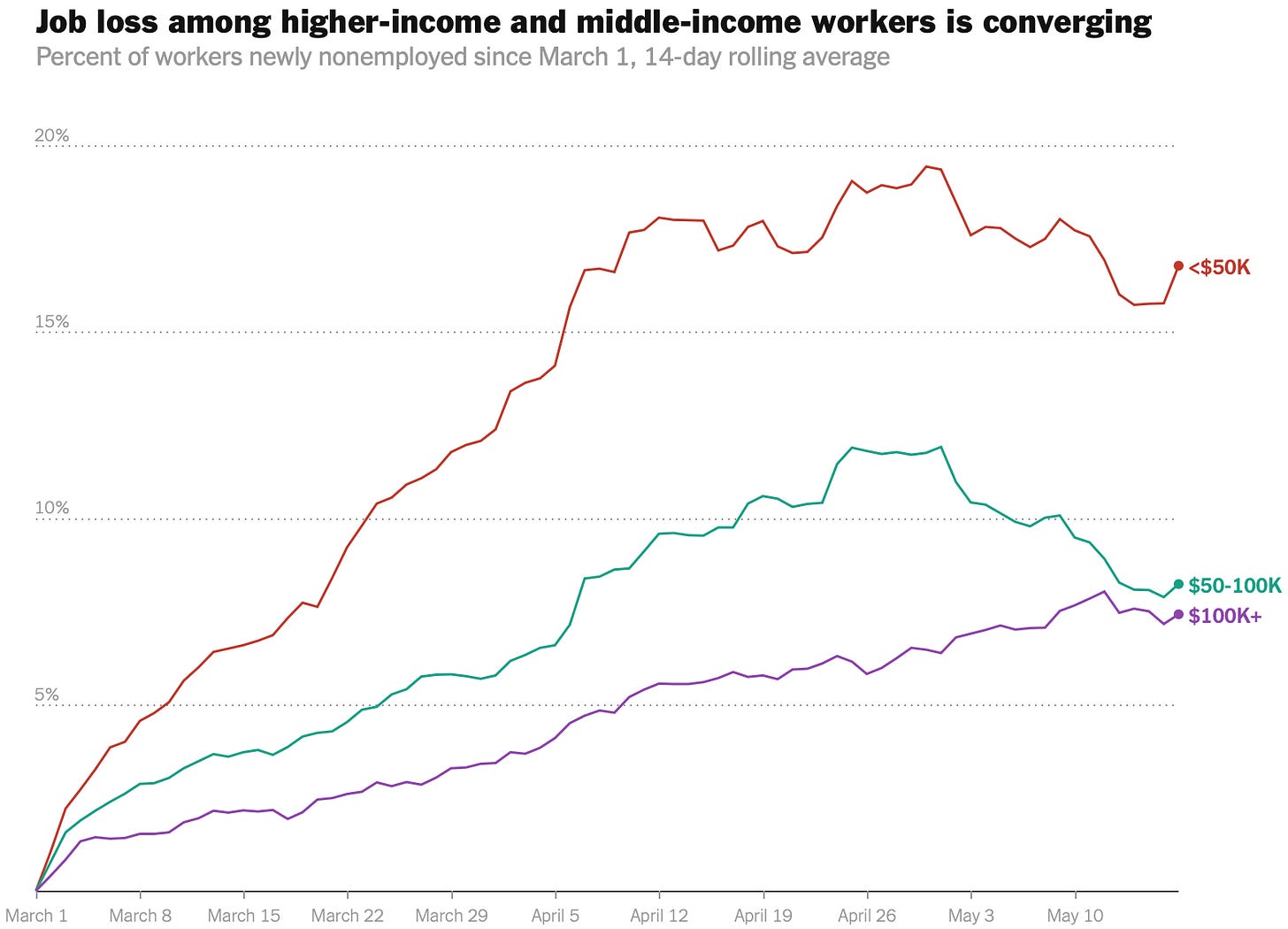
Brazil emerges as a top global coronavirus hotspot, as experts predict death toll will top 100,000 in the coming months. (Financial Times)
Venezuela and Iran are forging a closer strategic partnership: five oil tankers are steaming across the Atlantic Ocean, carrying an estimated 60 million gallons of Iranian gasoline. (Washington Post)
Economy
Morgan Stanley CEO expects only half of employees back by year-end. Royal Bank of Scotland Group told more than 50,000 of its staff to work from home until at least the end of September. (Bloomberg, The Times)
As Starbucks reopens cafes, the company regained about 60% to 65% of its U.S. same-store sales over the last week. (CNBC)
Europe’s recovery is imperiled by banks too scared to lend. The effort is stuttering, as no matter how much money governments offer banks, there is a limit to how much risk they can take. (Wall Street Journal)
Charles Schwab & Co. chief investment strategist Liz Anne Sonders:

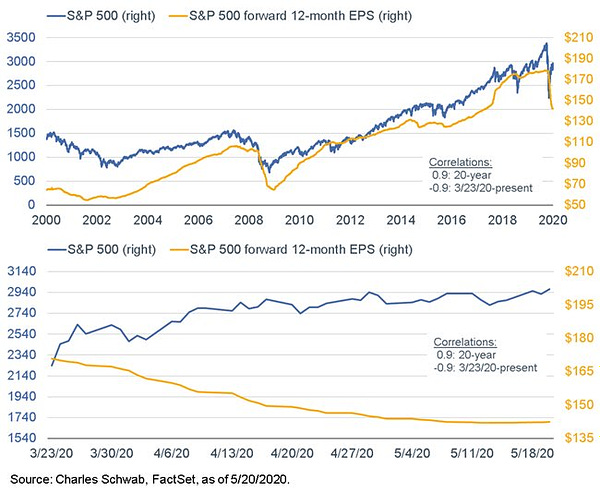
Technology
Lawmakers stepped up attacks on a possible Uber-Grubhub merger, but antitrust experts said that robust meal-delivery competition will make it tough for regulators to block the deal. (The Information)
IBM is cutting an unspecified number of jobs in the first major workforce reduction under new Chief Executive Officer Arvind Krishna, who is trying to revive growth. (Wall Street Journal)
Worldwide game spending totaled a record-breaking $10.5B in April, as lockdowns impact gaming habits. Revenue was higher than March 2020 and was up 17% over April 2019 ($8.9B). (SuperData Research)
Carnegie Mellon researchers find that nearly half of Twitter accounts pushing to reopen America may be bots. (MIT Technology Review)
Apple is ramping up its push into original podcasts by seeking an executive to lead the initiative and buying shows that would be exclusive to its services, just days after Spotify’s announced deal to exclusively distribute Joe Rogan’s show. (Bloomberg)
Smart Links
Parents with degrees give their children significant advantage in math. (Science Daily)
Prepare to be tracked and tested as you return to work. (MIT Technology Review)
Lockdowns shortened the flu season by 6 weeks. (Nature)
Hydroxychloroquine linked to higher Covid-19 death rates. (The Lancet)
Where the world's biggest sports leagues stand on reopening. (ESPN)
All-girl robotics team in Afghanistan creates low-cost ventilator ... with car parts. (NPR)
A chemistry professor explains how to brew better coffee at home. (Wall Street Journal)
Boom in Italy divorce proceedings as couples emerge from 10 weeks of lockdown. (The Telegraph)
Good News
“125 Kids Books We Love” — released on the NY Public Library’s 125th anniversary (NYPL)
British artist David Hockney, 82, used his iPad to create a painted video of the sunrise — A New Dawn. The video above ends with a personal message of hope from the artist. (The Telegraph)
Did you like the newsletter? Why not subscribe now?





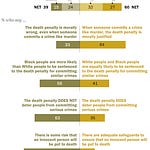


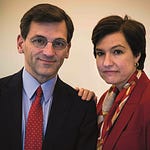
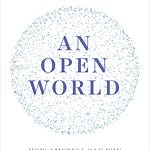
Strong Likelihood